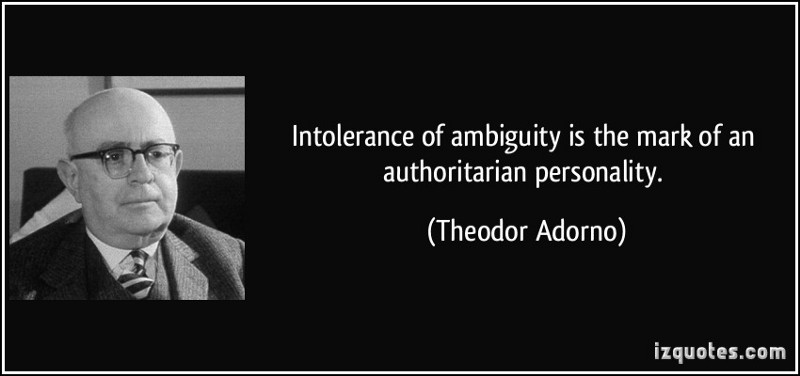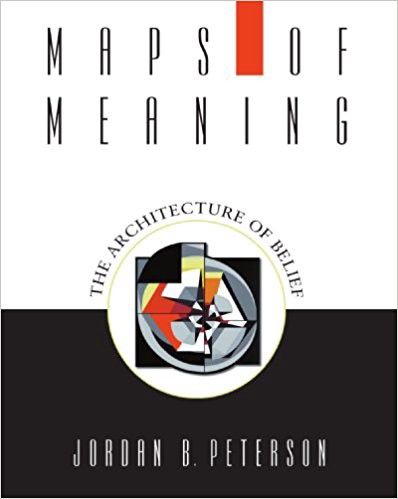YouTube is the new global frontier. We live in a time where it is somehow publicly acceptable to declare that you developed your political views from a playlist of SJW-bashing videos or compilations of “X publicly humiliates Feminist Volume 10”. It is from stumbling upon these strange, concerning, and somehow earnest volumes that I discovered the work of Jordan B. Peterson.
I had been a listener (through mostly morbid curiosity) of the Chapo Trap House podcast and admittedly learned of Peterson as a Canadian psychologist whose persona and voice resembled that of a combination of Darkwing Duck and Kermit the Frog. My interest in understanding the “other” point of view has occasionally gotten the better of me. This case was no exception: A single search led me into a whirlwind of videos with bombastic and haughty titles such as “Liberal professor tries to bait Jordan Peterson, fails miserably”, “Leftist Host SNAPS At Jordan Peterson, Instantly Regret It”, and “Jordan Peterson Debunks White Privilege”, among others. After I had spent a long enough amount of time staring into the abyss of what was clearly an articulate man with a hellbent agenda, I came to conclude that a certain type of individual was being appealed to in a way that felt both familiar but also disturbingly refreshing.
In an age where steps towards equality feel like oppression for the privileged, Jordan Peterson provides “objective”, “rational”, and “common sense” explanations of social phenomenon. His credentials in the very narrow field of clinical psychology give him the cover to follow in the lineage of phrenology or “scientific racism” to pathologize attempts towards some modicum of justice as irrational and "fascist". Ultimately his attempts at being objective are a smokescreen for white identity politics, convincing white men in particular that pride is their birthright and that all problems can be solved if you simply work hard enough.

Peterson’s contemporaries ought to be concerning enough on their own. The Youtube faction of Sargon of Akkad, Milo Yiannapoulous, and Ben Shapiro largely comprise individuals who don’t necessarily identify with the alt-right but are celebrated for achieving a platform by speaking “in common sense”. Their claims to fame cannot be ignored: their “quasi-media” has collectively gained hundreds of thousands to several millions of views and their Patreons provide them an income that surpasses any regular day job. Peterson is no exception, as his Patreon currently produces 4x the amount of income he makes through his position at his academic institution.
It is within this economically viable media production that who makes up the audience watching this content is equally as important as the individuals that produce the content. Theodor Adorno, the German philosopher and sociologist, contended in the early 20th century that an “Authoritarian Personality” exists so that “the major concern was with the potentially fascistic individual, one whose structure is such as to render him particularly susceptible to anti-democratic propaganda”. The key word here is propaganda, as the content of the viral videos Peterson has so much notoriety for could very easily be described as content that seeks to take advantage of those with a fascistic personality, desiring society to be simultaneously more free but also regimented. Adorno’s research indicates that this personality type develops early via rigid, punitive parenting emphasizing morality and obedience in which prejudice is not so much a material way of treating others as it is a “generalized attitude”.
These individuals don’t necessarily have any particular political leanings but research has shown that they are more likely to err towards demagogues (a category of which it could be argued Peterson belongs) as well as conservatism more generally. These individuals fear nonconformity in favor of conventionality, are intolerant of ambiguity, and have high respect for superiors. Adorno’s findings suggest that the idealization of authority figures and the qualities listed are highly related and in fact, may be a direct result of anger resulting from emotions that festered during childhood in frustration towards one’s parents. Specifically, these individuals seek a “legitimate” authority figure, though what constitutes this legitimacy is up-for-debate. Jordan Peterson neatly fits these requirements for an authority figure because of his academic credentials, his ability to speak publicly, and finally his willingness to combat threats to social conservatism.

Peterson’s rise to fame occurred with the arrival of C-16, a proposal in the Canadian government to prohibit discrimination on the grounds of “gender identity and expression”. He released video installments refusing to use the preferred gender pronouns of students based on objections to free speech as well as comparing these preferences to the “vanguard of a post-modern, radical leftist ideology I detest […] similar to the Marxist doctrine that killed at least 100 million people in the 20th century”. In essence, he cited his oppositions to Marxism as reasons to not respect gender identity issues that had little to do with Marxism. This contradiction and circular reasoning would pervade much of the views Peterson has gone on to espouse but with even more conviction than ever before, now against the backdrop of a perceived “fascist” leftist movement on college campuses.
It is precisely this backdrop that bolsters his popularity: individuals who might identify as centrist or moderate desperately cling to a mild-mannered, soft-speaking old white man worried about free speech issues. The prime example of this is his infamous interview with Cathy Newman, in which the Channel 4 News anchor spends 30 minutes grilling Peterson about his views only to be deemed a “social justice warrior” and “bitch” for doing so. The memes generated subsequently criticized Newman’s interviewing for her tendency to interpret and re-word the logical conclusion of what Peterson was saying, ultimately making Peterson appear more calm and reasonable than he had already presented himself as being. Peterson’s response to the vitriol directed to Newman after the interview was simply that it yielded no utility and even worse, the insults and threats directed towards her could not possibly reflect misogyny.
Additionally, the lack of similar fervor amongst leftists in mobilizing online in the same way Peterson’s cohort does presents additional problems for those focused on social justice. The focus on language in particular is the tangent members of the alt-right latch onto and use to detract from any attempts towards authentic change, resulting in a cycle of mockery and contempt from those who refuse to see trans individuals as humans with agency. Protests on the ground enable the respectability politics necessary for those in the center to look at those taking action as being “too radical” and in opposition to free speech that supposedly can’t hurt anyone. Protests outside Grant Hall at Queen’s University in anticipation of Peteron’s arrival incurred the destruction of property; this lead to comparisons to “barbarians” in the same way that protesters in Occupy Wall Street or Black Lives Matter or even Colin Kaepernick are criticized for the means by which they express dissent.
Ironically, it is Peterson’s inability to stay accountable to his own actions that resulted in many of these protests occurring in the first place, as he is documented for going as far as to blaming legislators putting bills like C-16 on the docket rather than questioning his own assumptions about the ethics of respecting trans people. Direct action has become less reasonable than seeking to maintain the status quo. Contradiction in tradition is the underlying theme in Peterson’s facade of decorum and objectivity.

His calm demeanor as a fallacious weapon of presentation is most evident when you look at the actual content of his videos and writing. His work could be characterized as an odd combination of generic self-help advice, criticism of political correctness without ever defining what that means, Jungian archetypes, the essentialism/necessity of hierarchies, and “New Conservatism”. Some of Peterson’s most famous videos are about the benefits of cleaning up your room, surely not something that was taught as part of formulating a differential diagnosis during his doctorate in clinical psychology. The way that his claims remain fairly innocuous is by Peterson claiming objectivity. He is not explicit when it comes to discussing nationalism or espousing the right for “white to be right”. However, his insistence on a colorblind interpretation of anthropology and philosophy in general presents no basis of objectivity nor scientific justification.
First, he uses both mysticism and secularism in a way that clouds his own conservative beliefs. Calling himself a “classical liberal”, Peterson follows in the tradition of Eckhart Tolle (the famed self-help guru) by conceptualizing psychology not as a study of human behavior but instead of belief. In his most famous book the Maps of Meaning, he indicates that “the world that stories describe is not the objective work, but the world of value — and that it is in this world that we live, first and foremost”. It is crude then to suggest that his objectivity is what lends him credibility when Peterson himself admits that his conjectures are guided by value judgments rather than anything measurable in the material world.


This is clear especially in his criticism of political correctness and his “slippery slope” to postmodern neo-Marxism, a term that on its own makes no sense at all. Support for free speech has been shown to be rising and is noticeably higher among those who identify as liberal as well as those who attend colleges, two populations that Peterson is best known for indicting. Those who perceive themselves to be ostracized by the left are often done so justly with the notable example of Bari Weiss of the New York Times blaming “a far-left ‘mob’” for her problems despite perpetuating stereotypes about Asian-Americans as perpetual foreigners and playing a crucial role in attempting to purposefully end the careers of Arab and Muslim scholars criticizing Israel.
There appears to be a trend where those whose careers are made in leveraging free speech claims attempt to benefit from silencing others in return. Peterson’s insistence on history as his motivating force to “awaken” his audience members also falls painfully short. His analysis of world affairs is largely limited to speculating about a collective unconscious within the Judeo-Christian framework, neglecting most other worldviews with the occasional lip service to Taoism. This, of course, is in light of his obsession with Nietzsche and the concept of ressentiment despite both having markedly ‘high Orient’ influences that don’t subscribe to Jungian interpretations of collective unconscious.
Peterson’s objective science claims also fall flat. His most famous analogy of lobsters as an example of why hierarchies are needed in society at-large makes no sense when you come to the unmistakable conclusion that humans are more complex than lobsters. Specifically, serotonin as the neurotransmitter informing lobster desire for hierarchy/domination doesn’t apply its same effects in humans as humans and other organisms use serotonin for completely different purposes. Therefore it’s silly that a simple low production of serotonin could explain why humans would be satisfied with residing in a lower rung of a social hierarchy. Additionally, the plasticity of human brains renders these hierarchies mutable whereas Peterson’s claim that our social hierarchies are inevitable presents a false self-fulfilling prophecy. These claims especially make less sense when taken in context of his prioritization of basic actions like cleaning your room so as to better yourself and improve your status as a person with a focus on personal responsibility. Why care at all if you’re doomed like a lobster?

Peterson’s claims of knowledge regarding politics, philosophy, and gender are mired in Jungian archetypes that became mute and outdated decades ago for the simple fact that Jung’s ideas are both unverifiable and in-falsifiable. His claim that “postmodernism and its relationship with neo-Marxism, and then that spread of that into the universities” ignores the blatant observation that even the most highly-regarded intellectuals were ostracized and literally policed for holding leftist beliefs in modern history. Peterson’s criticism of post-modernism and identity politics is itself postmodern: he follows in the tradition of Nietzsche’s fear of ressentiment and fears that “reason lends itself to a logic of domination”.
Lastly, his beliefs about women have no factual basis whatsoever. He claims that feminists don’t speak out about human rights abuses in Saudi Arabia because of “their unconscious wish for brutal male domination” and that they are “biologically more neurotic than men”. It makes sense then that his support of individuals like James Damore of Google discriminatory fame is rooted in pseudo-scientific justifications that men and women can’t work together in the workplace because of supposedly essentialized differences. There’s even a Twitter account that shows how misogynistic and unbelievable his beliefs regarding women are, rendering it dubious as to whether or not a quote was said by Peterson or a radical Wahhabist cleric.
Peterson’s similarity with radical Islam is fleshed out in a manner akin to Samuel Huntington’s concept of the clash of civilizations, in which the West and the East are incompatible. This incompatibility, Huntington says, will result in massive geopolitical conflict. Peterson ascribes something similar to this and indicates that it was literally his obsession because he had visions in the night to suggest so. This vision defines his beliefs.
“I had frightening, re-occurring nightmares about the possible destruction of the world. I decided, in consequence, that I would devote myself to the alleviation of my ignorance. I have attempted to do so, ever since — while finishing my doctorate at McGill University, while serving as a faculty member at Harvard and the University of Toronto”.
Ultimately, Peterson’s danger lies in his ability to be a "reasonable" radical, capable of willing together the vestiges of the fragile white souls of those unsure as to who to believe anymore to his side of the battlefield. If the Internet is an ideological battleground, Peterson is the inauspicious horn summoning the infantry. Tread carefully.

Comments powered by Talkyard.